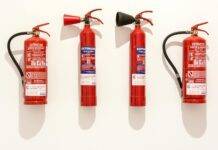
Electrical Safety Quiz: Multiple Choice Questions and Answers
Electrical Safety Quiz : In our modern world, electricity powers almost every aspect of our lives. From our homes to our workplaces, electrical devices are an integral part of our daily routine. While electricity has greatly improved our quality of life, it also poses potential risks if not handled safely. Electrical accidents can lead to serious injuries or even fatalities. To ensure your safety and the safety of those around you, it’s crucial to have a solid understanding of electrical safety. This article presents an electrical safety quiz to test your knowledge and provide valuable insights into staying safe around electricity.
Introduction
Electrical safety is a topic that can’t be taken lightly. As electricity flows through wires and devices, it can be harnessed for various purposes, but it can also be dangerous if not treated with respect. This article aims to educate you about the potential hazards associated with electricity and how to stay safe in various scenarios.
The Basics of Electricity
Before diving into the quiz, let’s refresh our knowledge of electricity’s fundamental principles. Electricity is the flow of electrons through conductive materials. It powers our lights, appliances, and gadgets. Understanding how electricity works is essential to practicing safety.
Common Electrical Hazards
Electrical hazards are present both indoors and outdoors. From frayed cords to water contact, knowing these hazards is the first step toward preventing accidents. Faulty wiring, exposed wires, and overloaded circuits are common culprits.
Importance of Grounding
Grounding is a crucial safety measure that prevents electrical shocks and fires. It provides a pathway for excess electrical energy to dissipate harmlessly into the ground. Ungrounded appliances and tools can pose serious risks.
Electrical Safety Measures at Home
Your home is where electrical safety matters the most. Installing safety outlets, using surge protectors, and keeping cords away from heat sources are vital practices. Regularly inspecting your electrical system can prevent potential issues.
Safety Precautions in Outdoor Settings
Outdoor electrical safety involves being cautious around power lines, avoiding water contact during outdoor activities, and using outdoor-rated extension cords. These precautions minimize risks while enjoying outdoor spaces.
Handling Electrical Emergencies
Knowing how to respond during electrical emergencies can save lives. From performing CPR if necessary to turning off power during an accident, swift actions can prevent further harm.
Importance of GFCIs and AFCIs
Ground Fault Circuit Interrupters (GFCIs) and Arc Fault Circuit Interrupters (AFCIs) are modern safety devices that protect against electric shocks and fires. Understanding their functions and ensuring they’re installed can enhance your safety.
Electrical Safety in the Workplace
Workplace electrical safety is essential for employees’ well-being. Employers should provide proper training, maintain safe equipment, and encourage a culture of electrical safety.
Testing Your Electrical Safety Knowledge
Now, let’s put your electrical safety knowledge to the test. Take this quiz to assess your understanding of various safety measures and precautions.
The Dangers of Overloading Circuits
Overloading circuits is a common yet hazardous practice. It can lead to overheating, fires, and electrical failures. Learn how to avoid overloading circuits to protect your home and devices.
Childproofing and Electrical Safety
Children are naturally curious, making them vulnerable to electrical hazards. Childproofing outlets, teaching them about electrical risks, and supervising their interactions with electronics are essential steps.
Using Extension Cords Wisely
Extension cords are convenient but can pose risks if misused. Learn how to select the right cord for the job, avoid daisy-chaining, and prevent trip hazards.
Advancements in Electrical Safety
Technology continues to improve electrical safety. From smart outlets that can be controlled remotely to advanced circuit breakers, staying updated with safety innovations is crucial.
Fire Safety Quiz Questions Answers
Safety Quiz Competition Questions & Answers For Safety Officer 2023
25 Saudi Aramco Safety Evaluation Test Questions – Short Test For Safety Officers
Electrical Safety Quiz: Multiple Choice Questions and Answers
- What is electricity? a) The flow of water in pipes b) The movement of atoms in a solid c) The flow of electrons through conductive materials d) The reflection of light off surfaces
- Correct Answer: c) The flow of electrons through conductive materials
- What is a common electrical hazard in homes? a) Using water near power outlets b) Keeping cords away from heat sources c) Regularly inspecting electrical systems d) Turning off lights when not in use
- Correct Answer: a) Using water near power outlets
- What does grounding in electrical systems help prevent? a) Energy wastage b) Electric bill increase c) Electrical shocks and fires d) Voltage fluctuations
- Correct Answer: c) Electrical shocks and fires
- Which safety device helps protect against electric shocks in wet areas like bathrooms? a) Circuit breaker b) Surge protector c) GFCI outlet d) AFCI outlet
- Correct Answer: c) GFCI outlet
- What should you do if you experience an electrical shock? a) Wait and see if any symptoms develop b) Rub the affected area with a cloth c) Apply ointment to the shock site d) Seek medical attention immediately
- Correct Answer: d) Seek medical attention immediately
- Why is overloading circuits dangerous? a) It can cause lights to flicker b) It might damage appliances c) It can lead to overheating and fires d) It causes power outages
- Correct Answer: c) It can lead to overheating and fires
- Where are GFCI outlets highly recommended? a) Bedrooms b) Living rooms c) Kitchens and bathrooms d) Hallways
- Correct Answer: c) Kitchens and bathrooms
- What should you do if you notice frayed cords on electrical devices? a) Ignore them, they’re not a big deal b) Tape them up with duct tape c) Replace the cords or devices d) Try to fix them using household tools
- Correct Answer: c) Replace the cords or devices
- What should be avoided when using extension cords? a) Plugging in multiple appliances b) Keeping them coiled when in use c) Plugging them into GFCI outlets d) Using them outdoors
- Correct Answer: a) Plugging in multiple appliances
- What is the purpose of an AFCI outlet? a) Protects against electric shocks b) Prevents power surges c) Detects dangerous arcing conditions d) Filters out electromagnetic interference
- Correct Answer: c) Detects dangerous arcing conditions
- What does an Arc Fault Circuit Interrupter (AFCI) protect against? a) Power outages b) Voltage fluctuations c) Dangerous arcing conditions d) Overloaded circuits
- Correct Answer: c) Dangerous arcing conditions
- Why is it important to childproof electrical outlets? a) To prevent children from playing outside b) To conserve energy c) To keep children away from electronics d) To protect children from electrical hazards
- Correct Answer: d) To protect children from electrical hazards
- Which of the following is NOT a safe practice when using extension cords? a) Plugging multiple devices into the same extension cord b) Keeping the extension cord coiled while in use c) Using extension cords rated for outdoor use d) Inspecting extension cords for damage before use
- Correct Answer: b) Keeping the extension cord coiled while in use
- What should you do if you see a fallen power line? a) Pick it up and place it on a non-conductive surface b) Approach cautiously to see if it’s still live c) Call emergency services and stay away d) Try to move it away from the road
- Correct Answer: c) Call emergency services and stay away
- Why should you avoid overloading power strips? a) It can damage the power strip b) It might cause lights to flicker c) It can lead to overheating and fires d) It may decrease energy efficiency
- Correct Answer: c) It can lead to overheating and fires
- Which of the following should you NOT use near water sources? a) Battery-operated devices b) Grounded electrical devices c) Extension cords d) Non-grounded appliances
- Correct Answer: d) Non-grounded appliances
- What is the purpose of a surge protector? a) To reduce electricity consumption b) To increase voltage in the circuit c) To prevent power outages d) To protect devices from voltage spikes
- Correct Answer: d) To protect devices from voltage spikes
- Why is it important to have your home’s electrical system inspected regularly? a) To reduce energy consumption b) To update your electrical devices c) To identify and address potential issues d) To test the accuracy of your electricity bill
- Correct Answer: c) To identify and address potential issues
- What is the first step to take during an electrical fire emergency? a) Pour water on the fire b) Use a fire extinguisher immediately c) Call emergency services and evacuate d) Try to put out the fire with a blanket
- Correct Answer: c) Call emergency services and evacuate
- Which safety device automatically shuts off power when it detects a ground fault? a) Circuit breaker b) AFCI outlet c) Surge protector d) GFCI outlet
- Correct Answer: d) GFCI outlet
Conclusion
Electrical safety is a responsibility that everyone shares. By understanding the potential hazards and following safety guidelines, we can protect ourselves, our loved ones, and our property from electrical accidents. Remember to always prioritize safety and stay informed about the latest safety advancements.
Frequently Asked Questions (FAQs)
- Q: What should I do if I experience an electrical shock? A: If you experience an electrical shock, seek medical attention immediately. Even if the shock seems minor, it’s important to get checked by a medical professional.
- Q: Can I use the same extension cord for multiple appliances? A: It’s not recommended to daisy-chain multiple appliances on the same extension cord, as it can lead to overloading and increased fire risk.
- Q: Are GFCI outlets necessary in every room? A: While they’re not required in every room, GFCI outlets are highly recommended in areas where water is present, such as kitchens, bathrooms, and outdoor spaces.
- Q: How often should I have my home’s electrical system inspected? A: It’s recommended to have your home’s electrical system inspected by a professional every 3 to 5 years to identify and address potential issues.
- Q: What’s the purpose of an AFCI outlet? A: An AFCI outlet (Arc Fault Circuit Interrupter) is designed to detect dangerous arcing conditions that could lead to fires, providing an extra layer of electrical safety.
























